ATOM ASITIS | Creatine Monohydrate | 100 GM | 32 Servings | Dope Free | Expiry Date – May 2025

🎯Authorized Brand - Workout Energy Fitness Solutions Private Limited
🚚Fast Shipping Average time: 1-3 days for Delhi-NCR or 3-5 days rest of India - FREE Delivery on orders > ₹500.
💯Genuine Products are directly procured from the authorized importers of the brand.
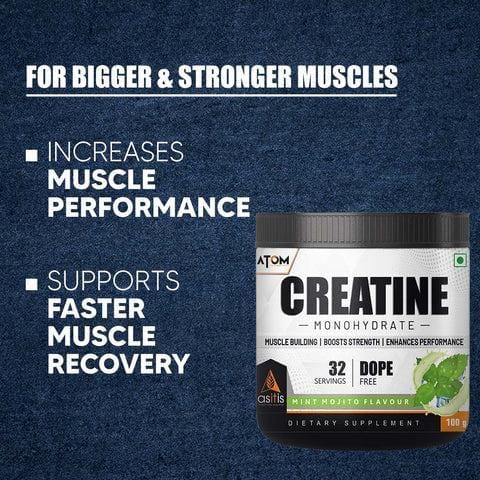

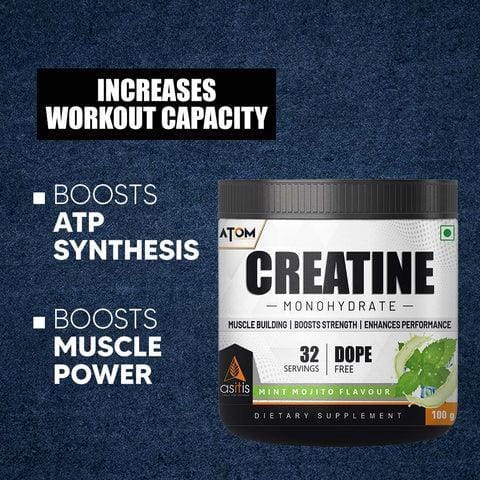
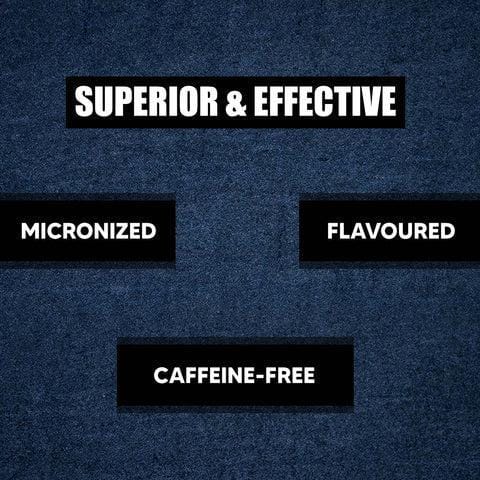
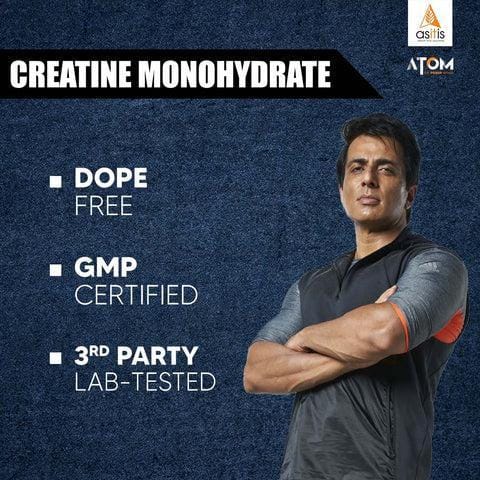
- What is Creatine Monohydrate?
Creatine Monohydrate is a naturally occurring compound in the body that plays a key role in energy production. Creatine comprises three amino acids – glycine, arginine and methionine. Almost 95% of the body’s Creatine stores are in the muscles. Creatine is known for its ability to quickly convert the ADP into ATP in the muscle cells. Creatine is the most-researched and widely used supplement that enhances muscle strength, reduces muscle fatigue, speeds up recovery, and increases muscle mass.
- When is the right time to consume ATOM Creatine Monohydrate?
Since Creatine’s major benefit comes from its energy production, it is more suitable to be consumed before (30 minutes) of your training.
- What is the serving size of ATOM Creatine Monohydrate?
The serving size of ATOM Creatine Monohydrate is 3.1g
- How much Creatine should I take per day?
The standard recommendation for Creatine intake is 3-5 g per day. Higher doses of Creatine (up to 20 g) may lead to faster muscle saturation, but this may not be suitable for all. Cycling Creatine or taking very high doses may increase the side effects, such as muscle cramps, diarrhea, or dehydration.
- Is Creatine a safe supplement?
Yes, Creatine is the most studied fitness supplement that has been widely used in the sports and fitness sectors. As per experimental studies, Creatine is a safe supplement when taken at recommended dosages (3-5 g/day). It is suggested to use Creatine only after consulting a physician if you are being treated with non-steroidal anti-inflammatory drugs, caffeine, diuretics, or drugs that affect the kidneys.
- Can I take Creatine with milk?
Yes, you can consume Creatine with milk.
- How to take ATOM Creatine Monohydrate?
Mix one level scoop (3.1g) in 100ml water and consume before your training session.
- What is the expiry date of the product?
Creatine is ideal to be used within 18 months from the date of manufacture.
- How is Creatine made?
Creatine is naturally synthesized in the body from the amino acids glycine, arginine, and methionine. Creatine is made in the liver, kidneys, and pancreas before being transferred to muscles as Creatine Monohydrate. The commercial Creatine supplements are synthesized chemically through the combination of sarcosine and cyanamide.
- How do I take Creatine?
Follow the recommended dosage on the product label and consume Creatine in conjunction with a regular strength training workout, a balanced exercise routine, and adequate hydration.
- Is Creatine safe for teens?
Creatine supplements are considered safe for use by teenagers when taken as per the recommended daily dosage. Supplements are not recommended for individuals under the age of 18. Creatine supplementation is beneficial for those involved in resistance training. - Is Creatine a steroid?
No, Creatine is a safe dietary supplement, not a steroid. It is naturally made in the body with amino acids arginine, glycine, and methionine. Creatine is also found in small amounts in food sources like red meat and fish. Creatine is a completely safe dietary supplement that is legal for use in the sports sector.
- Does Creatine have side effects?
Creatine is generally a safe and well-tolerated dietary supplement for most people when taken as per the recommended dosages. Creatine supplementation plays a key role in energy production by increasing the body’s stores of phosphocreatine. As a rare case, some individuals may experience gastrointestinal discomfort or bloating when first starting Creatine supplementation. This can be avoided by staying well hydrated. Muscle cramping is one anecdotal side effect associated with Creatine supplementation. Creatine shuttles water into the intramuscular compartment, so it is advised to consume more water (4-5 litres) and not overdose on Creatine. It is important to buy Creatine supplements from a trustworthy brand that pays more attention to the purity aspects of the supplement.
- Is Creatine best for muscle gain?
Creatine supplementation increases stores of Creatine in the muscles, helping to increase the production of ATP, and allowing for effective muscle contractions during short bursts of high-intensity workouts. By helping you push yourself harder during workouts, Creatine supplementation helps individuals do more reps and lift heavy weights. This provides a good training stimulus that translates into greater muscle mass and strength. In addition to increasing training stimulus, Creatine increases water content in muscle cells, which not only makes muscles look volumized but also increases muscle growth by driving more nutrients to muscles.
- Does Creatine cause kidney damage?
There is no credible evidence linking Creatine supplementation to kidney damage. Numerous studies have shown that Creatine supplementation does not hurt kidney function. Creatine supplementation is associated with a potential for dehydration (which may strain the kidneys) if adequate water intake is not maintained. It’s important to drink plenty of water while on Creatine supplementation to avoid such uninvited side effects. Individuals with pre-existing kidney conditions are advised not to supplement with Creatine. It is suggested to consume the Creatine in recommended doses combined with a balanced diet, regular exercise, and staying hydrated.
- Is Creatine a protein?
Creatine is a nitrogenous compound, not a protein. - What happens when you stop taking Creatine?
As Creatine’s main job is to enhance the Creatine stores, discontinuing Creatine usage will decrease the muscle creatine stores over time, and your body will gradually return to its baseline levels of creatine. If you regularly intake Creatine and stop taking it, you may experience a loss of muscle mass and strength, as Creatine plays a role in energy production during exercise. As Creatine causes muscle volumization through water retention, discontinuing Creatine supplementation may lead to a decrease in water weight. If you are concerned about the withdrawal symptoms, Creatine is not addictive and hence won’t cause any symptoms when you stop taking Creatine.
- Can I use Creatine after a workout?
Creatine’s main role is to boost potential energy, make you feel energized, and increase muscle strength to push yourself during high-intensity workouts. Taking Creatine post-workout will help replenish the muscle Creatine stores, which may have been depleted during your workout sessions, reduce muscle soreness, support faster muscle recovery, and allow you to get back to the gym stronger and enhance exercise performance. If you intend to take Creatine post-workout, it is recommended to combine it with carbs, which could potentially enhance its absorption and improve muscle glycogen stores.
- Does Creatine cause headaches?
Creatine is known to increase muscle performance by making faster availability of ATP. Creatine typically does not cause headaches in most people. Creatine draws water into the muscles, which is likely to cause dehydration. If you don’t drink an adequate amount of water while on Creatine supplementation, it can lead to dehydration and electrolyte imbalance, which could potentially lead to headaches. Stay well-hydrated throughout the day while using Creatine.
- How do I take Creatine for best results?
To find the best results from Creatine supplementation, consider taking the supplement as per the recommended daily dosage suggested on the product label in conjunction with regular weight training. Stay consistent with supplementation regimen, training, proper diet and drinking adequate water.
- Is weight gain from Creatine permanent?
The initial weight gain that comes from Creatine supplementation is due to water retention in the muscles. Long-term supplementation with Creatine combined with regular strength training workouts will lead to increased lean muscle. If you discontinue taking Creatine, the weight that you gained from water retention will come down (as water retained in the muscles will return to normal levels), however, the weight gained due to muscle mass can be retained through adequate protein consumption and regular strength training. - Should I take Creatine in cycles?
Taking Creatine in cycles (taking it in large doses for a period, followed by a maintenance phase) is not necessary and there is limited evidence to suggest that cycling of Creatine can improve its effectiveness. Consistent use of Creatine in recommended daily doses of 3-5g (well-established by studies) can help enhance the benefits of Creatine for optimal performance.
- How long does Creatine Monohydrate take to work?
Creatine’s basic function is to increase the body’s production of ATP, the primary energy source for muscle contractions. To find the best results of improvements in muscle strength, and increased muscle mass, you must take Creatine consistently over some time. You must note that the individual response to Creatine can vary from person to person depending on genetics, diet, training regimen, and overall health. Stay consistent with resistance training, and supplementation, take the supplement in proper dosage protocol, maintain a healthy lifestyle, and stay patient to see good supplementation results.
- Is ATOM Creatine Monohydrate vegan?
ATOM Creatine Monohydrate is a white, crystalline compound that is synthetically prepared, it’s not derived from animal sources. The product is suitable for those following vegetarian and vegan diets.
- Does Creatine Monohydrate cause acne?
No scientific studies have revealed the connection between Creatine Monohydrate supplementation and acne formation. Some individuals complain about acne formation during Creatine supplementation, here Creatine itself does not cause acne breakouts. If you consume high doses of Creatine with regular strength training, it may lead to increased levels of dihydrotestosterone (DHT), which may produce more sebum, and cause acne. As Creatine intake may lead to dehydration, not consuming it with adequate water will cause dehydration, which can lead to acne breakouts.
- Is Creatine suitable for beginners?
There’s a misconception about Creatine that it is suitable only for trained bodybuilders and athletes. However, this is not true. Beginners starting their weightlifting workouts can benefit from Creatine’s ability to increase ATP stores, which can lead to improved performance. Beginners can get the benefits of improved muscle strength and muscle mass from Creatine supplementation if they follow the recommended dosages and combine it with a well-rounded strength training regimen.
- Does Creatine boost testosterone?
The primary function of Creatine is to increase muscle strength and power output. While no studies have revealed the direct effect of Creatine on increasing testosterone levels, its ability to increase phosphocreatine levels in the muscles is well noted.
- Does Creatine Monohydrate burn fat?
Although Creatine doesn’t have a direct role in burning fat, through its role in enhancing ATP production during short bursts of high-intensity activities, Creatine contributes to increasing the intensity and volume of your training sessions. The higher training stimulus can contribute to building more muscle mass and increasing the basal metabolic rate. Creatine supplementation combined with resistance training can help preserve muscle mass when in a calorie-deficit phase.
- Does Creatine increase fat mass?
No, Creatine’s primary role is to increase muscle strength, power output, and muscle mass. Creatine when taken with regular strength training workouts helps reduce fat mass. By boosting the fasting regeneration of ATP, Creatine helps you perform more reps which can contribute to building lean muscle mass, and fat loss over time.
- Does Creatine Monohydrate help with weight loss?
Creatine does not directly promote weight loss, it may indirectly lead to weight loss results by increasing muscle mass and metabolism. Creatine boosts ATP generation and spares lean muscle mass which contributes to overall calorie expenditure.
- For how long can I take Creatine Monohydrate?
Creatine Monohydrate is a safe and well-tolerable dietary supplement for long-term use in healthy individuals when taken at recommended dosages. It is important to note that individual tolerances to the supplementation can vary.
- Is Creatine Monohydrate safe for diabetics?
Creatine is not indicated by studies to affect blood sugar levels; however, diabetics are advised to consult with a healthcare professional before starting Creatine supplementation. - Should I take Creatine Monohydrate on off days?
Yes, you can take Creatine on rest/off days too.
- What does Creatine taste like?
In its natural, unflavoured form, Creatine does not have a strong taste on its own. It typically has a neutral taste and a slightly salty flavour profile. ATOM Creatine Monohydrate is crafted in refreshing flavours that not only invigorate your taste buds but also help take your workouts to the next level.
- What is the difference between Creatine and Creapure?
Creatine and Creapure are forms of the same compound Creatine Monohydrate. The difference between the two lies in the quality and purity of the compound. Alzchem produces Creapure in Germany by using a unique filtration process that filters out impurities and contaminants completely. While Creatine is 98-99% pure, Creapure is a gold standard Creatine Monohydrate which is 99.9% pure. In terms of effectiveness, both Creatine and Creapure are equally effective in enhancing your strength training performance. - Are there any carbs in ATOM Creatine Monohydrate?
No, ATOM Creatine Monohydrate does not include any carbs.
- Can I take Creatine and Arginine together?
While Creatine helps replenish ATP levels in the muscles to increase muscle strength during high-intensity workouts, Arginine produces nitric oxide which helps improve the delivery of oxygen and nutrients for better muscle pumps and endurance. Combining the two supplements will work towards enhancing muscle growth, muscle strength, muscle pumps, faster muscle recovery and boosted overall performance.
- Can we take Creatine with hot water?It is suggested to mix Creatine with water at room temperature, lukewarm water may enable better solubility of the compound. It is not suggested to mix Creatine with very high-temperature fluids.
- Can I take Creatine with BCAA?
Yes, the two supplements complement each other and provide the benefits of enhanced training results. While Creatine helps increase muscle strength and muscle mass, BCAA helps in faster muscle repair, recovery and promotes muscle protein synthesis. One must remember that supplementation should go in line with the fitness goals.
- Can I take Creatine with Whey Protein?
Yes, with this combination, you can expect better workout performance and increased muscle mass. Taking Creatine 30 minutes before your workout will translate into enhanced power output and strength. Taking Whey Protein 30 minutes after your workout (during the anabolic period) will prevent muscle loss, and initiate faster muscle repair and muscle growth. Follow proper dosing, the timing of supplementation and regular strength training workouts to find the best result from both supplements. - Does Creatine cause hair loss?
The scientific experimental data do not suggest Creatine causes hair loss. In some who may be taking high doses of Creatine (15-20 g), Creatine may lead to increased levels of DHT, which is linked to hair loss. However, you must also consider factors like genetics, age, diet type, and stress which can all be the potential factors that influence hair loss. It is advised to take Creatine in moderate doses (3-5 g) with adequate hydration. - Does ATOM Creatine contain caffeine?
No, ATOM Creatine does not contain caffeine.
- Does Creatine cause water retention?
Since Creatine is primarily stored in the muscles, it draws in some water into the muscles as part of its mechanism of action causing muscle volumization. This action of Creatine is limited only to muscles and does not cause bloating or water retention throughout the body.
- Is Creatine good for cardio workouts?
For short bursts of high-intensity exercise that last between 1-2 minutes, the phosphocreatine shuttle predominates in generating faster ATP. Since ATP is not stored in muscles and Creatine’s way of energy production is through phosphocreatine generation, it is more suitable for those involved in sprinting, and strength training. It is not that people doing cardio workouts should not supplement with Creatine, but its benefits are more pronounced in explosive short-duration training. - How does Creatine function in the body?
Supplemental Creatine provides a premise for the higher rate of ATP resynthesis (by furnishing high-energy phosphate molecules to ADP). Your intense training places high energy demands and Creatine enables faster energy availability to help you perform better, suppress muscle fatigue, and enhance recovery during bouts of high-intense performance.
- Does ATOM Creatine Monohydrate include a scoop inside?
Yes, the product includes a 3.1g scoop inside.
- Is ATOM Creatine Monohydrate suitable for vegetarians?
Yes, the product is suitable for vegetarians.
- Is ATOM Creatine micronized?
Yes, the product is micronized.
- How to store ATOM Creatine Monohydrate?
Store the container in a cool, dry place, away from contact with direct sunlight. Close the lid securely after every use and avoid bringing in contact with damp hands or a damp scoop. - Why should we supplement with Creatine?
Creatine is naturally found in red meat, and fish. It is not found in any plant foods. Consumption of meat daily is practically not possible, and you need to consume very high quantities of Creatine-rich food to meet the results caused by supplements. Hence vegetarians and other athletes will find Creatine supplementation a feasible option to acquire the benefits of Creatine.
- Can I take Creatine with caffeine?
This is not an ideal combination. Since caffeine is a diuretic and Creatine draws water into the muscle cells, causing cell volumization, combining the supplements may increase the risk of dehydration and harm performance.
- Is ATOM Creatine Monohydrate a flavoured supplement?
Yes, the supplement comes in a range of delightful flavours.
- I am suffering from a kidney issue; can I take Creatine?
People suffering from kidney issues are strictly advised not to take Creatine.
- Will Creatine make female athletes bulky?
Creatine’s job is to offer a quick source of energy to push harder during workouts. Creatine does the same job with both men and women. The bulky body is achieved through high-calorie intake, lifting heavy weights, and the hormone testosterone which is responsible for muscle growth. Women are unlikely to get bulky using Creatine as women do not have the same testosterone level as men, moreover, the training and calorie needs vary concerning everyone’s fitness goals. Women will see an increase in strength, power, and lean muscle mass upon supplementing with Creatine.
- What are the benefits of ATOM Creatine Monohydrate?
The main benefit of Creatine lies in its quick furnishing of energy at the start of the exercise, which enables you to push yourself to the limits. ATOM Creatine Monohydrate boosts energy production under states of high energy requisite like high intense physical exertion, supports stronger muscle contractions, improves performance in high-intensity exercise, improves fat-free mass, and increases the benefits of training.
- Should I mix Creatine with Whey or can it be taken alone?
Creatine can be taken as a standalone supplement. While Creatine boosts your muscle strength and performance by faster regeneration of ATP, strength adaptations occur in the recovery phase. Hence, it is important to ensure you’re giving your muscles enough protein to repair the damaged tissue. Whey acts as a fast source of protein which can kick-start muscle protein synthesis. This is how the combination of Whey Protein and Creatine will benefit.
- How long after supplementation with Creatine, can I expect results of muscle gains?
The implied results of supplementation rely on body type, diet intake, and training adaptations. Athletes with more fast-twitch muscle fibers, like sprinters, and powerlifters often respond more quickly to Creatine supplementation than beginners. That is because body composition always plays a role, the leaner muscle mass you have, the better you respond to Creatine.
| Weight | 1 kg |
|---|---|
| Flavor | Cool Spearmint, Mint Mojito |
Only logged in customers who have purchased this product may leave a review.
Featured
Brands
Top Selling
Store Notice:
The product information provided here is for reference only. We cannot guarantee 100% accuracy of images, description or any other data with the actual physical product. Cross-check product related information, content and label from the brand customer care before ordering. Consult your doctor or nutritionist before consuming any product.


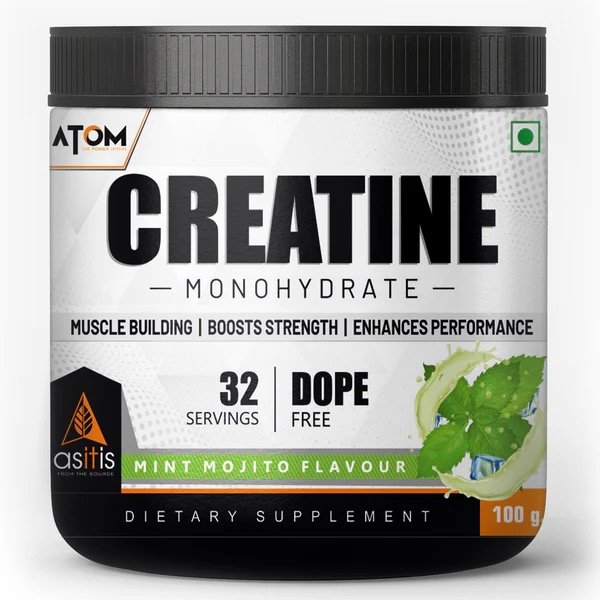
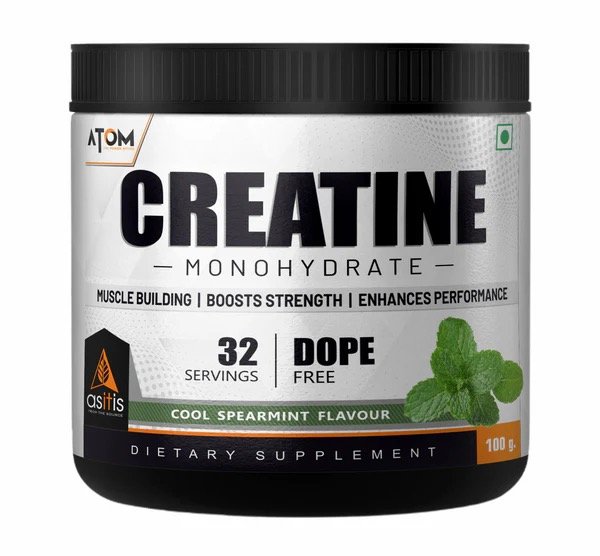
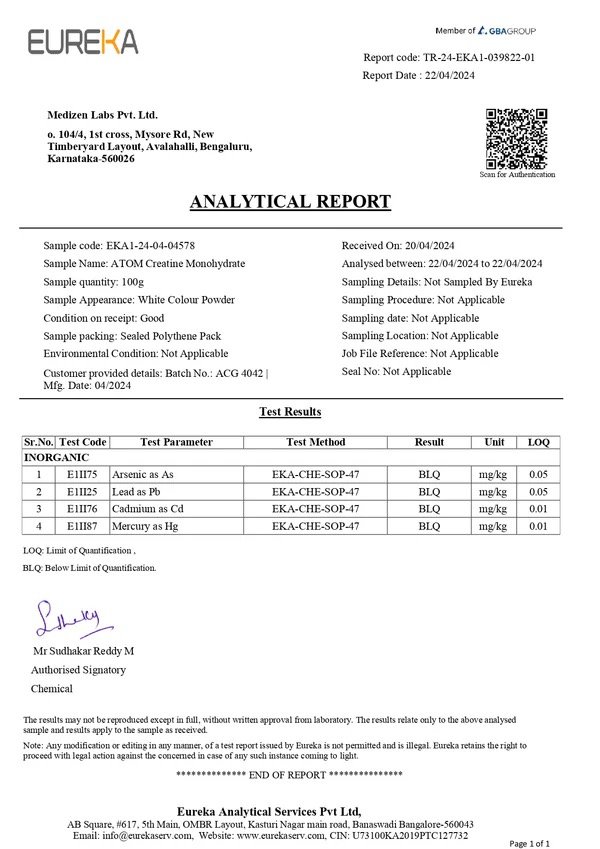
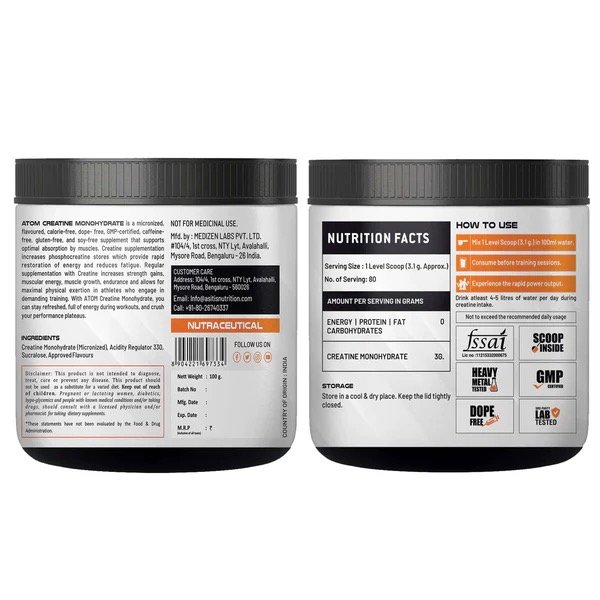
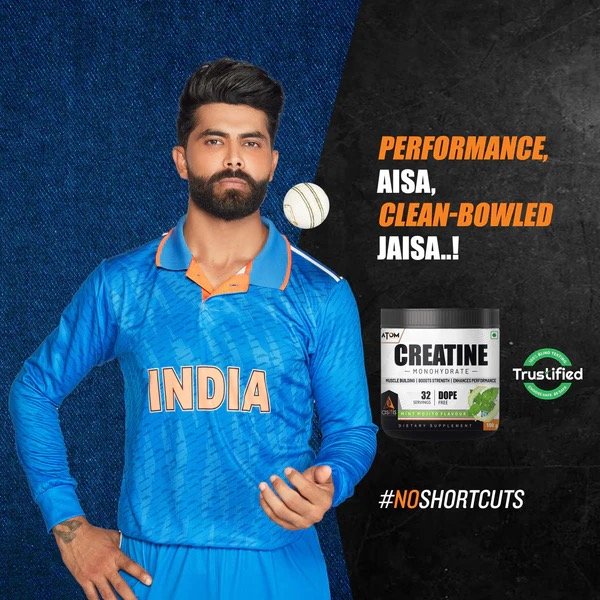
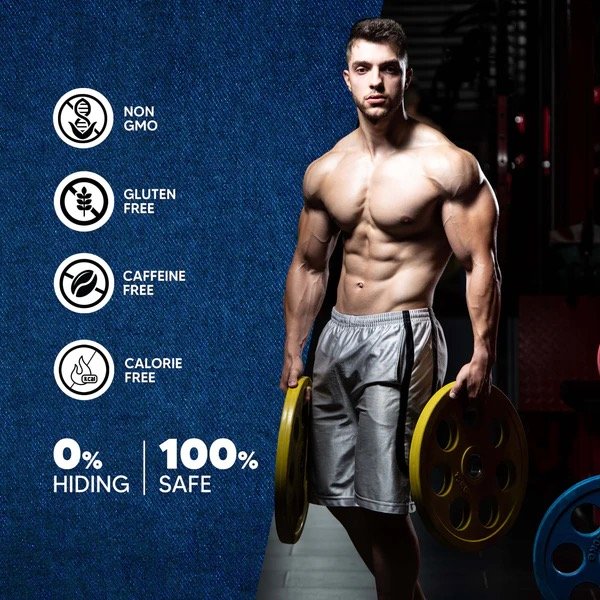
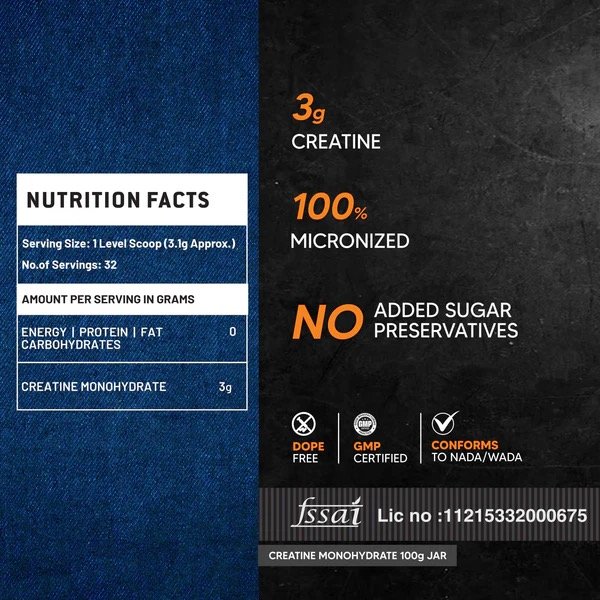

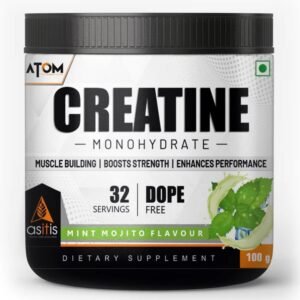
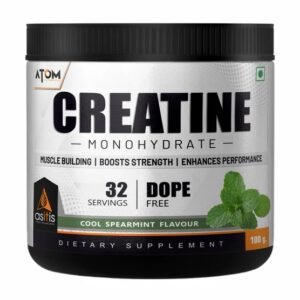
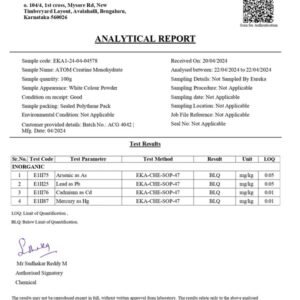
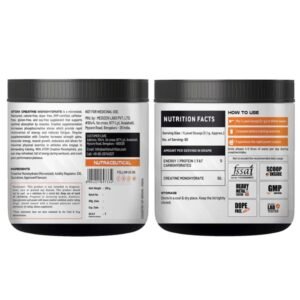


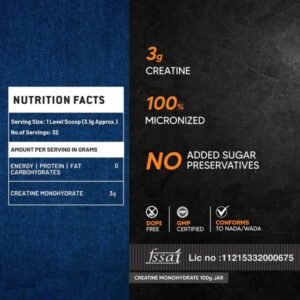

![Byson Nutrition Crato Creatine Monohydrate 250gm [ EXPIRY DATE - MAY 2025 ]](https://workoutenergy.in/wp-content/uploads/2023/10/Front_4f521714-2f73-4aca-a688-d6d8193ef72e.png-300x300.webp)
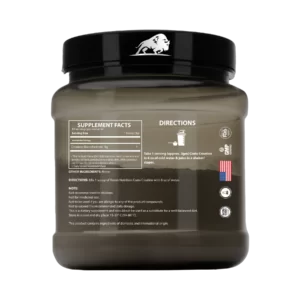
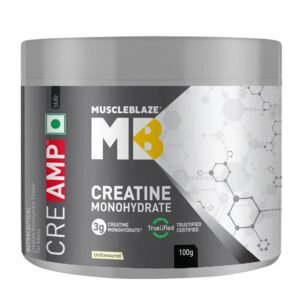
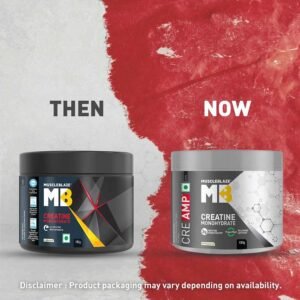
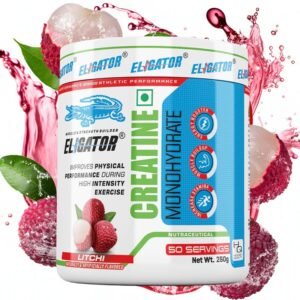
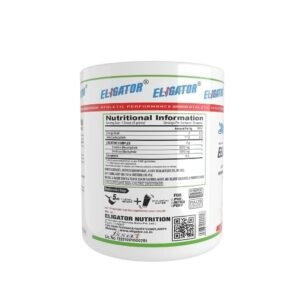
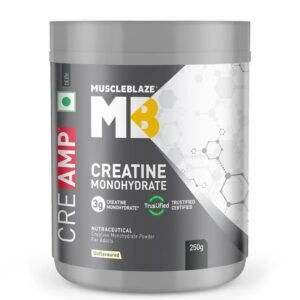
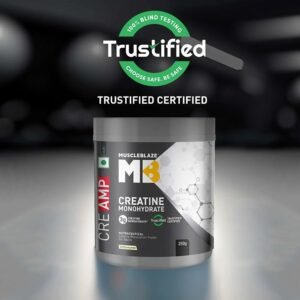
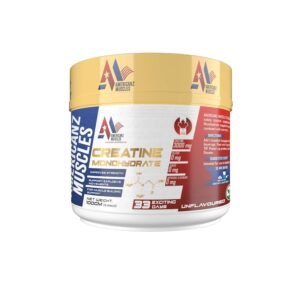




![Gat Sports Testrol Fire [ EXPIRY DATE - FEB. 2025 ]](https://workoutenergy.in/wp-content/uploads/2023/10/testrol-fire-494785_1024x1024.jpg-100x100.webp)
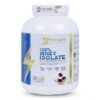
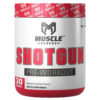




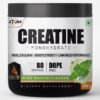
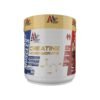
Reviews
There are no reviews yet.